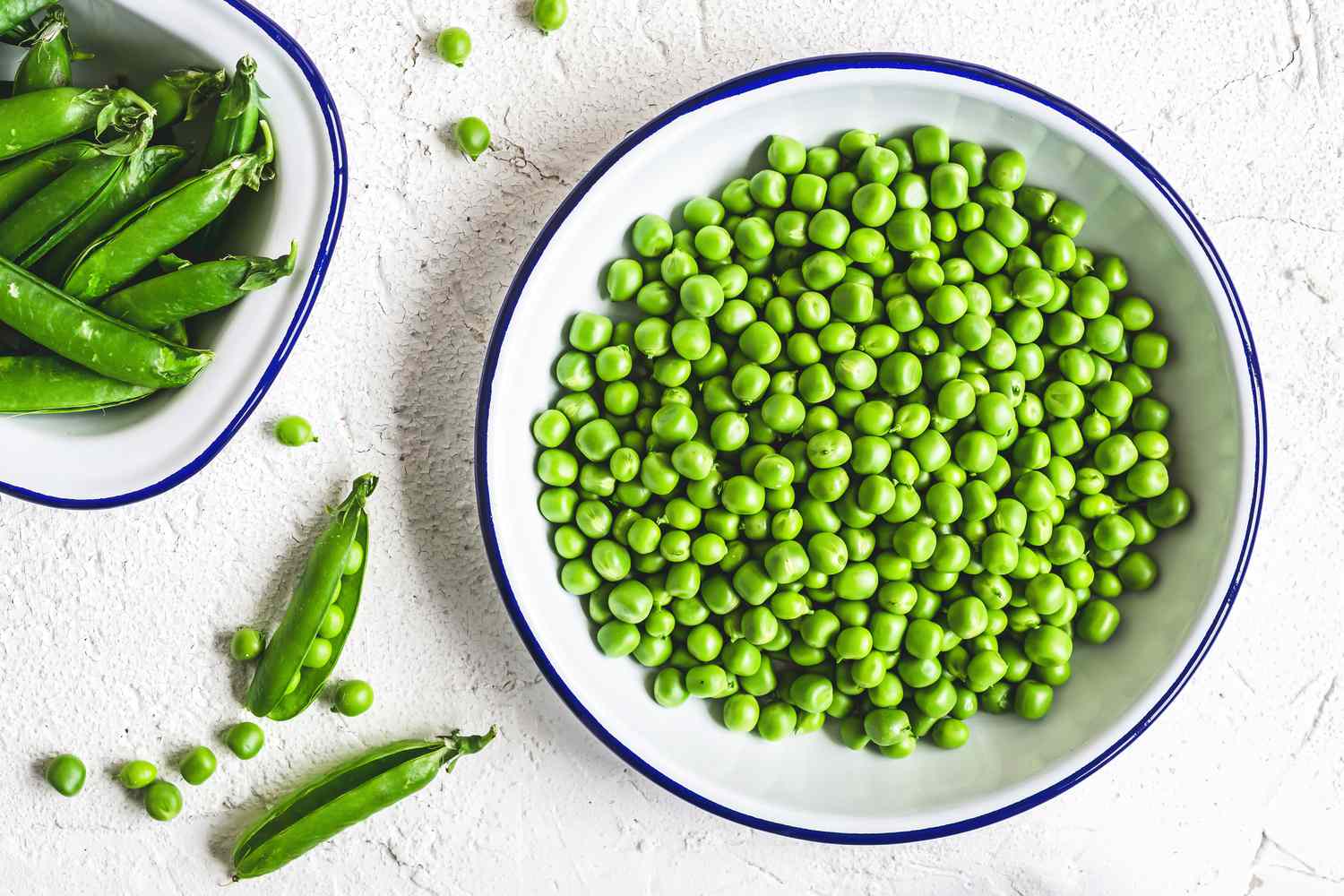
Peas – those tiny, vibrant green pods packed with nutrition and flavor. They may be small in size, but they have a big impact on our plates and our health. Whether you enjoy them fresh, frozen, or canned, peas are a versatile and delicious addition to a variety of dishes.
In this article, we are going to delve into the world of peas and uncover 19 fascinating facts about these humble legumes. From their rich history to their nutritional benefits and everything in between, you’ll gain a deeper understanding of what makes peas such a special ingredient to include in your meals.
So, prepare to be amazed as we explore the origins of peas, the different varieties available, and the surprising ways in which they contribute to our health and well-being. Get ready to have your mind blown by the wonders of these small but mighty vegetables!
Key Takeaways:
- Peas are a nutritious and versatile vegetable, rich in vitamins, minerals, and plant-based protein. They can support digestive health, heart health, and are a guilt-free, low-calorie addition to meals and snacks.
- Peas have a fascinating history dating back to ancient times, with different types available for various recipes. They can be enjoyed raw or cooked, frozen for long-term storage, and have been used in culinary traditions for centuries.
Peas are part of the legume family.
These small, round, and green wonders belong to the legume family, along with beans and lentils.
Peas are rich in vitamins and minerals.
They are a great source of vitamin C, vitamin K, manganese, and dietary fiber, making them a nutritious addition to any meal.
The ancient Egyptians cultivated peas.
Peas have a long history, dating back to ancient times. They were cultivated by the Egyptians as early as 4800 BC.
There are different types of peas.
From garden peas to sugar snap peas and snow peas, there is a variety for every taste and recipe.
Peas can be eaten both raw and cooked.
While peas are commonly cooked, they can also be enjoyed raw, providing a crunchy and refreshing texture.
Peas are a good source of plant-based protein.
For those following a vegetarian or vegan diet, peas are an excellent source of protein, helping to meet the body’s nutritional needs.
They can help support digestive health.
Peas contain dietary fiber, which aids in digestion and helps maintain a healthy digestive system.
Peas are low in calories.
With only around 60 calories per 100 grams, peas are a guilt-free addition to meals and snacks.
Peas are a versatile ingredient.
From soups and stews to salads and stir-fries, peas can be incorporated into a wide variety of dishes, adding both flavor and nutritional value.
They can be frozen for long-term storage.
If you have an abundance of fresh peas, freezing them is a great way to preserve their freshness and enjoy them throughout the year.
Peas have a high water content.
With a water content of approximately 80%, peas are a hydrating choice for maintaining proper body function.
They are good for heart health.
The fiber and antioxidants present in peas contribute to heart health by reducing the risk of cardiovascular diseases.
Peas have been used as a natural remedy for centuries.
Traditionally, peas have been used to treat ailments such as skin inflammation, urinary tract infections, and even as a diuretic.
The average pea pod contains around 6-9 peas.
Next time you enjoy some peas, count how many are nestled inside the pod!
Peas are a cool-season crop.
Most varieties of peas thrive in cooler temperatures, making them a popular choice for early spring or fall planting.
The term “pea” can also refer to a specific size of ammunition.
Interestingly, the term “pea” is also used in the ammunition industry to denote a specific size of shotgun ammunition.
Peas can be traced back to China and the Middle East.
The cultivation of peas can be traced back to ancient China and the Middle East, where they were valued for their nutritional properties.
Peas are a sustainable crop.
Peas have nitrogen-fixing properties, which means they can enhance soil quality and reduce the need for synthetic fertilizers.
Peas have been used in culinary dishes for centuries.
From traditional pea soups to savory pies and pasta dishes, peas have played a significant role in culinary traditions around the world for centuries.
There you have it, 19 fascinating facts about peas. Whether you enjoy them as a side dish, in a salad, or as a main ingredient, peas are a nutritious and versatile option that is worth adding to your plate.
Conclusion
In conclusion, peas are not just a common vegetable, but a powerhouse of nutrition and a versatile ingredient in various cuisines. From being a great source of vitamins and minerals to offering numerous health benefits, peas deserve a place on everyone’s plate. Whether you enjoy them fresh, frozen, or canned, there are countless ways to incorporate peas into your meals.With their delicate sweetness and vibrant green color, peas add both flavor and visual appeal to a wide range of dishes. From soups and salads to stir-fries and pasta dishes, peas can elevate the taste and nutrition of any meal. Plus, they are easy to grow in your own garden, making them a sustainable and readily available option.So next time you’re at the grocery store or planning your meals, don’t forget to include this humble yet mighty vegetable. Peas truly are a nutritious and tasty addition to any diet!
FAQs
1. Are peas a good source of protein?
Yes, peas are a surprisingly good source of protein. They contain about 5-6 grams of protein per 1/2 cup serving.
2. Can I eat peas if I’m following a low-carb diet?
While peas do contain carbohydrates, they can still be consumed in moderation as part of a low-carb diet. Just be mindful of portion sizes.
3. How should I cook peas to retain their nutritional value?
To retain the maximum amount of nutrients, it is best to lightly steam or blanch peas rather than boiling them. This helps preserve their vibrant color and nutrient content.
4. Are frozen peas as nutritious as fresh peas?
Yes, frozen peas are just as nutritious as fresh peas. The freezing process helps lock in the nutrients, making them a convenient and healthy option.
5. Can I eat the whole pea, including the pod?
While the pod of certain pea varieties is edible, it is generally not consumed. Most commonly, only the peas inside the pod are eaten.
6. Are peas suitable for people with certain dietary restrictions?
Peas are suitable for a wide range of dietary restrictions. They are naturally vegan, gluten-free, and dairy-free, making them a versatile option for many individuals.
7. Can I grow peas in my garden?
Absolutely! Peas are relatively easy to grow and thrive in cool weather conditions. They make a great addition to any home garden.
8. How can I incorporate peas into my meals?
There are countless ways to incorporate peas into your meals. You can add them to salads, pasta dishes, stir-fries, soups, or simply enjoy them as a side dish. The possibilities are endless!
9. Can I give peas to my children?
Peas are generally safe and nutritious for children to consume. They are a great way to introduce them to vegetables and provide them with essential nutrients.
10. Are there any health benefits associated with eating peas?
Yes, peas offer numerous health benefits. They are a good source of fiber, antioxidants, and vitamins A, C, and K. They also contain phytonutrients that promote heart health and may reduce the risk of certain diseases.
Peas offer a wealth of nutritional benefits and culinary possibilities. For those curious about other pea-related topics, consider exploring the astonishing facts surrounding sweet peas, which are not only visually stunning but also have a rich history. Pea soup enthusiasts might find the nutrition facts enlightening, as this comforting dish packs a healthy punch. Lastly, delving into the captivating world of sweet peas reveals their unique characteristics and the joy they bring to gardens and bouquets alike.
Was this page helpful?
Our commitment to delivering trustworthy and engaging content is at the heart of what we do. Each fact on our site is contributed by real users like you, bringing a wealth of diverse insights and information. To ensure the highest standards of accuracy and reliability, our dedicated editors meticulously review each submission. This process guarantees that the facts we share are not only fascinating but also credible. Trust in our commitment to quality and authenticity as you explore and learn with us.


